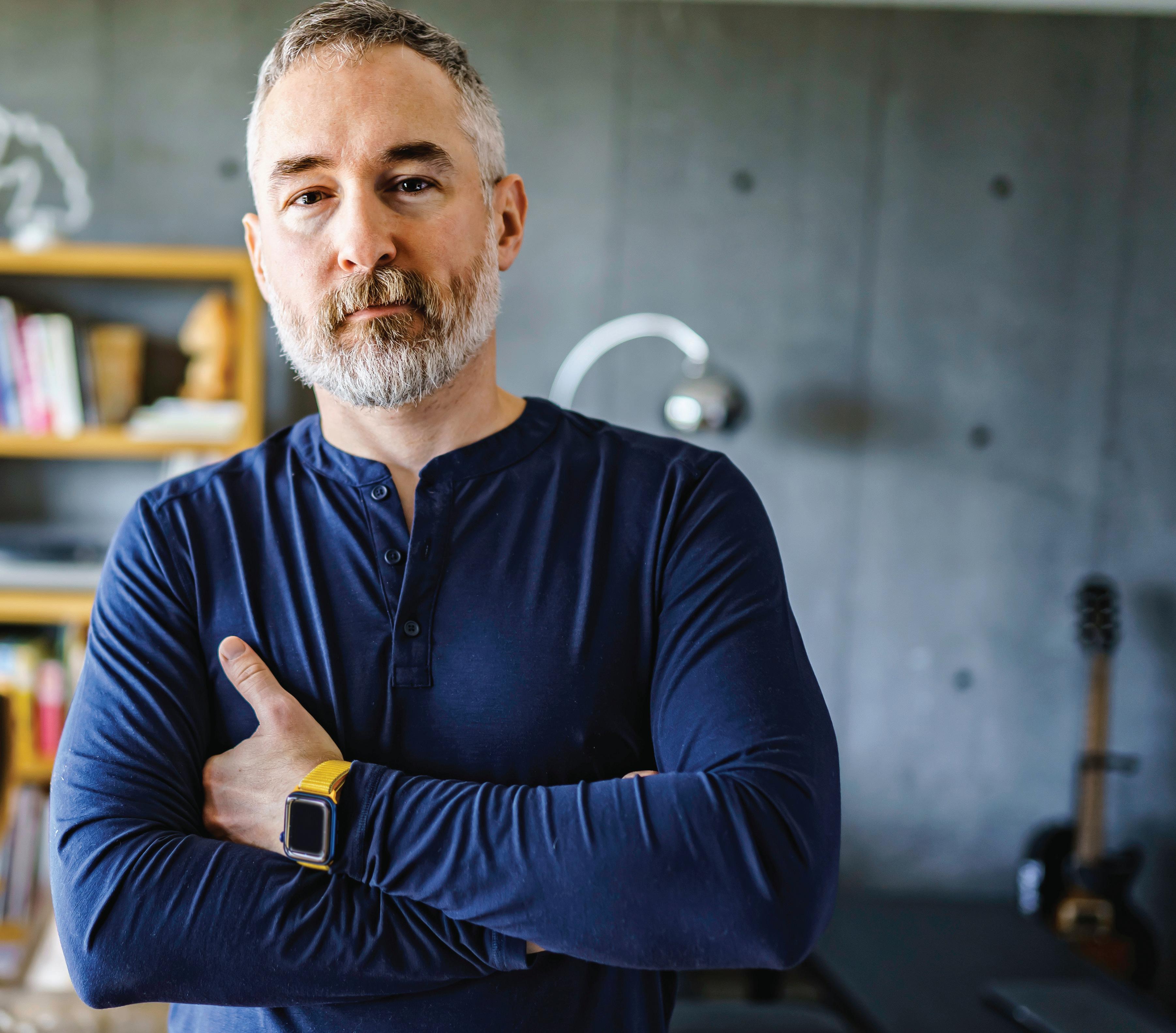
Page 2 CEO’s Corner, Foundation news Page 3 Community grantee spotlight: Long Island Jewish Medical Center Page 4 Prevent Cancer Dialogue: Spotlight on VCU Massey Cancer Center’s Dr. Robert Winn Page 6 Threat to lifesaving cancer screenings: The impact of a recent ruling on preventive care access Page 8 The latest behind USPSTF’s “I” grade for skin cancer screening Page 9 ABCDE rule, Don’t forget your sunscreen! Page 10 Multi-Cancer Early Detection Screening Coverage Act Page 11 The power of consistency: Join our Innovation Circle! DARE TO IMAGINE A WORLD WHERE CANCER IS PREVENTABLE, DETECTABLE AND BEATABLE FOR ALL SUMMER 2023 The impact of a recent ruling on preventive care access Threat to lifesaving cancer screenings: PAGE 6
CEO’S CORNER DEAR READERS,
When it comes to cancer prevention and early detection, there can often be an information overload as you navigate screening guidelines, the latest news and so much more. At the Prevent Cancer Foundation, we strive to simplify that information so you feel empowered to make the daily decisions that will lead to better outcomes for your health.
That’s why this issue is dedicated to bringing you the information you need now— from a court case that could affect your insurance coverage for preventive services to what the latest skin cancer screening recommendations mean for you and your loved ones. We hope you’re inspired to learn more and put prevention into action.
It takes a village to spread the word about cancer prevention and early detection. Thank you for being a part of our village and committing to a world where cancer is preventable, detectable and beatable for all.
JODY HOYOS CEO
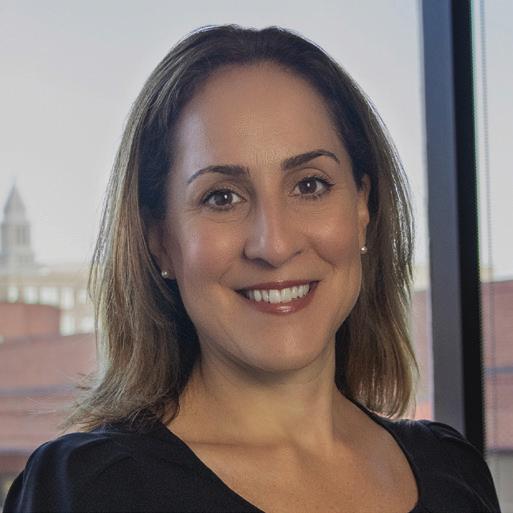
FOUNDATION NEWS
First Lady Jill Biden joins Congressional Families Program reception to advance cancer prevention and early detection

As part of the Biden Administration’s Cancer Moonshot, First Lady Jill Biden joined the Prevent Cancer Foundation’s bipartisan Congressional Families Cancer Prevention Program® in April for a reception at the Library of Congress in Washington, D.C. Bipartisan lawmakers, congressional spouses and leaders in the cancer community came together to recognize congressional spouses’ longstanding commitment to educating the public about ways to reduce cancer risk and the benefits of early detection. Dr. Biden was joined by Rep. Nikema Williams (D-Ga.) and congressional spouses Charlie Capito (W.Va.), Martha Hill (Ark.), Mary Himes (Conn.) and LeeAnn Johnson (Ohio), who spoke of their work with the Program to prevent cancer in their home states and districts.
Rep. Debbie Dingell (D-Mich.), co-chair of the Cancer Prevention Caucus, presented the inaugural Carolyn “Bo” Aldigé Visionary Award to Rep. Doris Matsui (D-Calif.) for her leadership as a congressional spouse in 1991, when she cocreated the Congressional Families Program with Ms. Aldigé.
To learn more about the Congressional Families Program, visit congressionalfamilies.org.
SUMMER 2023 2
Official White House Photo by Cameron Smith
COMMUNITY GRANTEE SPOTLIGHT:
Long Island Jewish Medical Center
Organization: Long Island Jewish Medical Center
Location: New Hyde
Park, New York
Year awarded: 2021
What they do: Many patients from Long Island Jewish Medical Center (LIJMC) face access barriers to cancer screening and treatment, due to factors such as limited English proficiency, lack of health insurance coverage, and poor socioeconomic status, all of which can contribute to their risk of poorer health outcomes in screening and treatment.
To address these challenges, LIJMC focuses on enhancing patient navigation services, from community outreach to appointment scheduling, to ensure patients make it to their appointments. LIJMC also provides comprehensive services that extend beyond cancer-related care, such as mental health and social support services and counseling. These important services tackle social determinants of health (SDOH) head on and impact one’s ability to live longer.
Who they serve: The LIJMC’s Cancer Community Connection Program serves a diverse population in the New York City boroughs of Queens and Nassau County, Long Island. They work with those who are medically underserved, have never been screened for cancer and experience complex barriers to health care.
The Prevent Cancer Foundation grant provides us the opportunity within our health care system to offer outreach services to help patients navigate their medical needs with a comprehensive approach. This funding is imperative as it focuses on the importance of screening and preventive care while simultaneously addressing financial and psychosocial barriers. It is an honor and privilege to be able to guide individuals in our community with empathy and compassion who may be facing barriers in a complex system.”
— Cancer Community Connection Program Patient Navigator
To learn more about how the Prevent Cancer Foundation’s community grantees are helping increase cancer prevention and early detection across the U.S., visit preventcancer.org/community-grants.

CANCER PREVENTION WORKS 3
PREVENT CANCER DIALOGUE:
Spotlight on VCU Massey Cancer Center’s Dr. Robert Winn
When you talk to Robert A. Winn, M.D., about health equity, his passion is clear— because he’s been there. After growing up in a medically underserved community, Dr. Winn dedicated his career to being a tireless advocate of community-engaged approaches to eliminating health disparities.
We talked to Dr. Winn shortly before he spoke at the Prevent Cancer Dialogue in May about his work advancing health equity and how community-focused efforts can address health disparities and improve cancer screening and prevention.
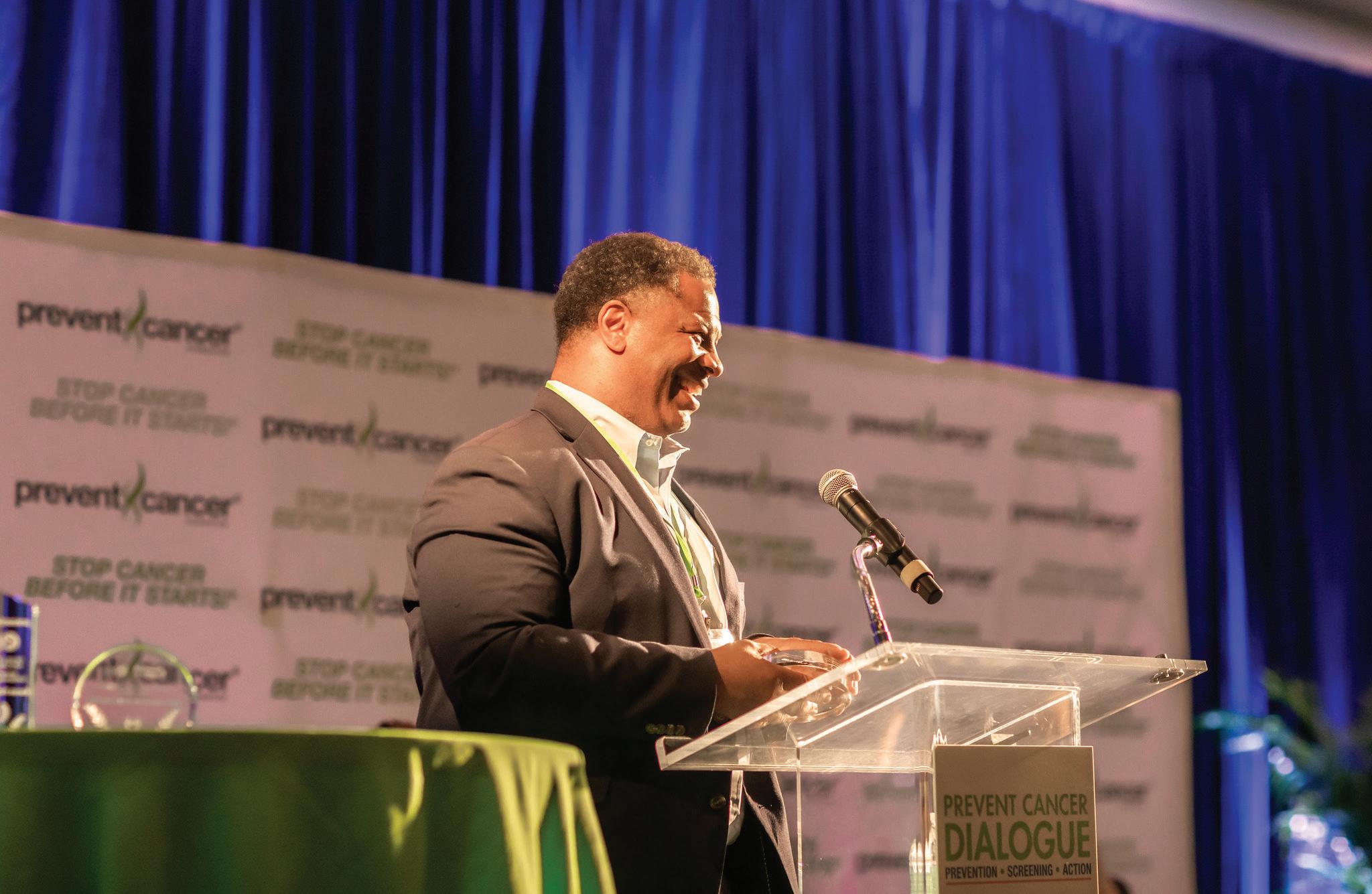
Q: Why are you personally invested and committed to advancing health equity?
A: I’m committed and invested because I’ve been there. I’ve walked in the shoes that too many others are still walking in today. My mother was 15 years old when she had me, and I was largely raised by my grandparents in a working-class neighborhood in Buffalo, New York. While I grew up rich with support and guidance, I was a “have not” in many more ways. But why was it that way? And why is it still that way today? Health care, in general, and cancer treatments, are basic human rights. Everyone needs access to the means to live healthy lives. The side of the railroad tracks that you live on should not determine whether you screen for cancer early and beat it or die from an advanced stage disease because you did not have the money or the transportation to get the test. I will never stop my work to advance health equity. It has been an issue for far too long.
4
Dr. Winn accepts the Laurel Award for Increasing Health Equity at the 2022 Prevent Cancer Dialogue.
Q: Why is a community-centric approach to health disparities important? How is this different from what we’ve done in the past?
A: Picture yourself as a single parent with two children, barely getting by on one or two low-paying jobs. The landlord is knocking for the rent payment, the power company is about to shut off the service, and the kids are going through growth spurts and hungry all the time. How can we expect that same parent to wake up one day, ignore the challenges around them and say, “I think today is going to be the day that I take the bus to that cancer center I’ve heard of to get some information about what age I need to start getting mammograms.” Not going to happen.
Q: What strategies (including patient navigation) can play a role, and how do we need to think about them?
We absolutely cannot wait for people to come to us, because they will not. We need to take resources to where they live, work, play and pray. Meet them where they are. This approach is different because it allows the people we serve to guide the conversation and the research and ultimately have a voice they may have never had before in health care. It infuses their ideas and their needs into everything we do. The key to improving and saving lives is talking with people as human beings instead of as clinicians. Oftentimes, these conversations are best had where the individuals are most comfortable: in their own communities.
A: I think back to when I was a kid in Buffalo who was bussed to a school in what the city considered to be a better neighborhood than my own. Was the education good? Absolutely. However, the true understanding of my personal circumstances was missing during the eight hours I spent learning science, math and history. It is why I often make the comparison that it doesn’t matter how high tech we are in medicine if we are not high touch, which requires human connection.
Representation matters, and I am not just referring to having someone who looks like you when you are going through a cancer diagnosis and treatment (although that can also be important). I am determined to hire from communities, for communities. I don’t discount that there are well-intentioned individuals who want to help and do a great job of it every day. But we also need a more diverse workforce that reflects the day-to-day experiences of the individuals we serve.
Learn more about this year’s Prevent Cancer Dialogue at preventcancerdialogue.org.
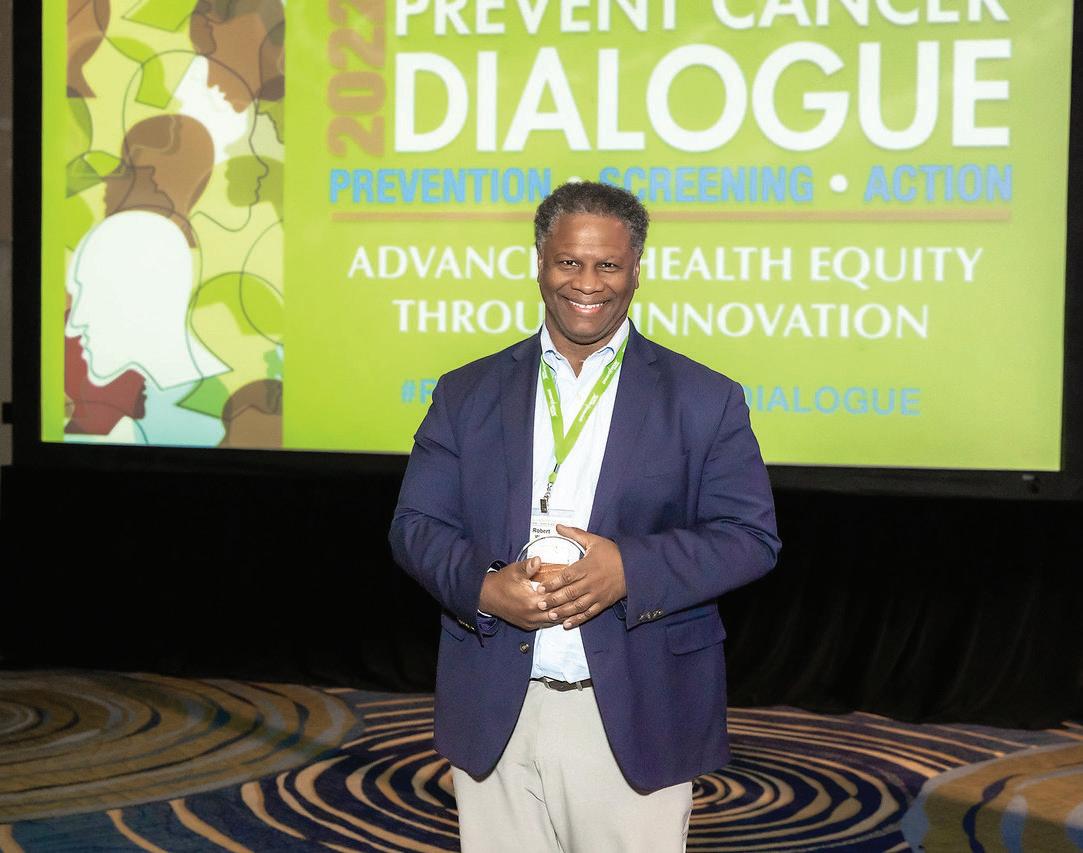
CANCER PREVENTION WORKS 5
We absolutely cannot wait for people to come to us, because they will not. We need to take resources to where they live, work, play and pray.
THREAT TO LIFESAVING CANCER SCREENINGS:
The impact of a recent ruling on preventive care access

Note: The information below represents the status of Braidwood Management v. Becerra as of June 2023.
When cancer is detected early, almost nine of every 10 patients with many types of cancer will live five years or longer. This is critical because early detection of cancer can mean less extensive treatment, more treatment options and better chances of survival. But in recent months, access to free, lifesaving cancer screenings under the Affordable Care Act (ACA) has been put in jeopardy.
In March 2023, a ruling on the case Braidwood Management v. Becerra threatened access to preventive care services for millions of Americans. The Prevent Cancer Foundation has been tracking the case and its impact on preventive care coverage so you can stay informed and ensure better outcomes for your health.
What did the ruling say?
U.S. District Judge Reed O’Connor struck down a requirement that applies to a crucial provision of the ACA that requires insurers to cover preventive services recommended by the U.S. Preventive Services Task Force (USPSTF) at no cost to the patient. Access to coverage for preventive care services—including but not limited to colonoscopies, mammograms, Pap tests, and lung cancer screening or low dose CT scans—is in question.
Before this ruling, coverage was required on a wide range of these preventive services, but the March decision blocks coverage requirements for any recommendations made before the ACA was signed into law and would apply nationwide. This could have a massive effect on accessible preventive care for cancer, depression, diabetes and HIV. (While the USPSTF had recommended some preventive services prior to the ACA becoming law, nearly all recommendations have been updated or expanded since that date.)
In May 2023, the U.S. Court of Appeals for the Fifth Circuit issued a stay, an action taken by a court to temporarily stop a legal proceeding. The stay is currently keeping the Department of Health and Human Services (HHS) from enforcing the ruling made by Judge O’Connor that could create cost barriers for preventive services like cancer screenings.
SUMMER 2023 6
How could this impact the care I receive?
This ruling strikes down the ACA’s coverage requirement for preventive services and applies to USPSTF screening guidelines issued on or after March 23, 2010, including those that have been changed or updated since that date.
If the ruling stands, coverage requirements for colorectal cancer screening, for example, would remain intact for people over the age of 50, because that was the recommendation prior to the ACA becoming law. But in 2021, the USPSTF updated their recommendation for colorectal cancer screening to expand eligibility to people ages 45 to 49 after reviewing strong evidence of increased colorectal cancer cases in people younger than 50, known as “young-onset” colorectal cancer. It would no longer be required that insurers cover people ages 45 to 49 because this was a recommendation made after March 23, 2010. This recommendation, along with many others made after this date, was based on the most recent research and evidence we have available on how to best prevent, identify and treat cancers and other diseases.
What happens next?
For the time being, no-cost coverage for preventive services is still required under law. Additionally, the U.S. Department of Justice has appealed Judge O’Connor’s decision, which kicks off a legal process that could end up at the Supreme Court. But unless the ruling is overturned by a higher court, the requirement for no-cost prevention and screenings recommended by the USPSTF won’t be restored (the stay will remain in place until the higher court issues a ruling). Without this requirement, it will be up to the insurance companies to decide what to cover and may vary based on your plan.

Since most people don’t experience signs or symptoms of cancer until it’s in advanced stages, preventive services like routine cancer screening tests are critical to catching cancer early—and Early Detection = Better Outcomes. This ruling jeopardizes the opportunity for millions of Americans to check their health in an affordable, accessible way.
Everyone deserves access to preventive care. Everyone. The Prevent Cancer Foundation is deeply committed to advocating for access to preventive care on behalf of all people and is continuing to monitor this issue. For more information, visit preventcancer.org.
CANCER PREVENTION WORKS 7
THE LATEST BEHIND USPSTF’S “I” GRADE FOR SKIN CANCER SCREENING
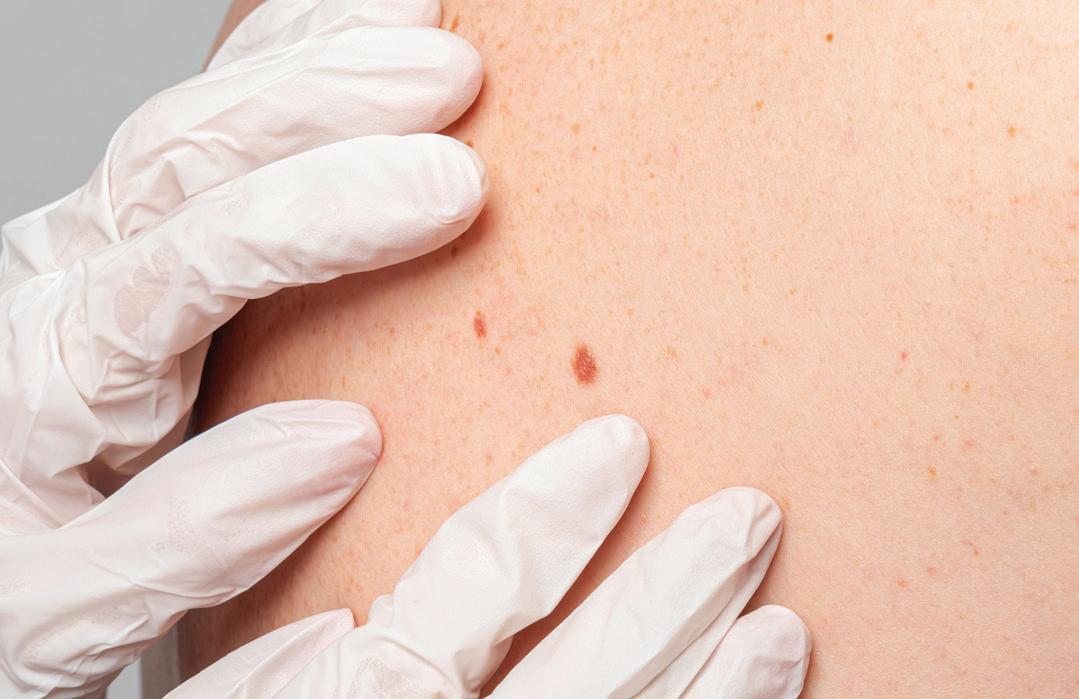

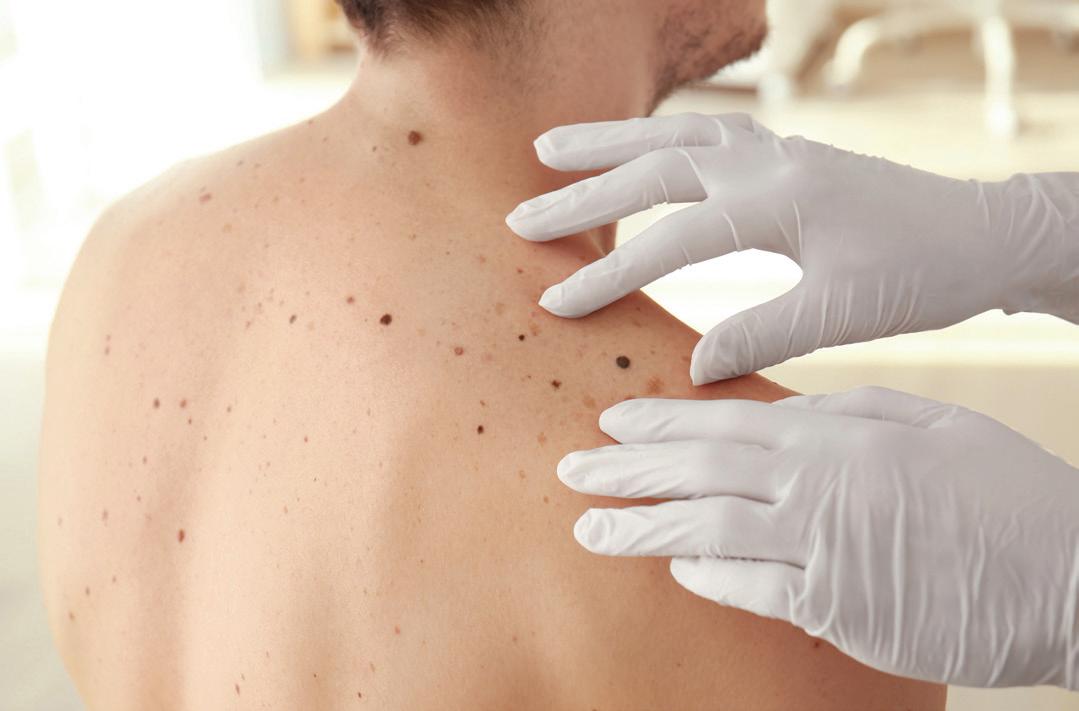
Letter grades—for cancer screenings?
When it comes to grading, it’s up to the U.S. Preventive Services Task Force (USPSTF), a group of medical experts who establish recommendations on certain health services, such as cancer screenings. They review the latest research findings about cancer screenings and assign a letter grade (A, B, C, D or I) on whether the services should be performed. By promoting health recommendations based on current research, the USPSTF helps inform people on what works and what doesn’t.
In April 2023,1 the USPSTF completed its review examining skin cancer screening. The previous recommendation had been made in 2016,2 and based on their analysis of the research since then, the USPSTF once again issued an “I” grade (or “I” statement) for “insufficient evidence” when it comes to visual skin examination by a clinician to screen for skin cancer in asymptomatic adults and adolescents.
An “I” grade means the USPSTF isn’t recommending skin cancer checks—but they aren’t recommending against skin cancer checks either. Essentially, they’re saying there just isn’t enough evidence to decide.
But not everybody agrees. Until more research is done, the Prevent Cancer Foundation supports recommendations made by professional organizations such as the American Academy of Dermatology that encourage everyone to have their health care provider perform an annual skin check.
You should also check your skin regularly using the ABCDE rule and talk to your doctor if you notice any suspicious moles or changes in your skin. Don’t forget steps to stay skin healthy and reduce your skin cancer risk. Early Detection = Better Outcomes, particularly when it comes to skin cancer.
SUMMER 2023 8
1. USPSTF. (2023). Screening for skin cancer: US Preventive Services Task Force recommendation statement. JAMA, 329(15), 1290–1295.
2. USPSTF. (2016). Screening for skin cancer: US Preventive Services Task Force recommendation statement. JAMA, 316(4), 429–435.
ABCDE RULE
Use this rule when looking at moles and check with your health care provider if a mole on your body doesn’t look right.



Don’t forget your sunscreen!
Skin cancer is one of the most common cancer diagnosis in the United States, with at least one in five Americans developing skin cancer by age 70.1 Fortunately, it is also one of the most preventable cancers. Wearing sunscreen every day, regardless of what you are doing or what the weather is like, is one of the best and most effective ways to protect your skin and prevent skin cancer.
B Border irregularity
C Color that is not uniform

Those with fair skin and light eyes and hair are at higher risk of skin cancer—but anyone, regardless of skin color, can develop skin cancer. So, everyone needs sunscreen, even those with darker complexions. It’s especially important to make sure your kids are using sunscreen—one bad sunburn in childhood can double your risk of skin cancer later in life.2
Safe, effective sunscreen is available at affordable prices, shielding your skin just as well as luxury versions with the same level of SPF. You can now find sunscreen in so many forms: gels, creams, sprays, oils, moisturizers and more, all of which are effective if used correctly. It’s important to wear water-resistant and sweatresistant sunscreens when you are doing outdoor activities, such as swimming or any strenuous exercise.
D Diameter greater than 6mm
The best sunscreen for you is sunscreen that protects your skin and that you will use. Whether that’s mineral or chemical sunscreen, spray or cream sunscreen (to name a few variations), buy and use whatever sunscreen best suits you, your skin and your lifestyle.
Evolving size, shape or color
If you notice any change in size, shape or elevation of a mole, or experience any new symptoms such as bleeding, itching or crusting, see your health care provider promptly.

1. ‘Skin Cancer Facts and Statistics,’ Skin Cancer Foundation https://www.skincancer.org/skin-cancer-information/skincancer-facts/
2. Lew RA, Sober AJ, Cook N, et al. Sun exposure habits in patients with cutaneous melanoma: a case study. J Dermatol Surg Onc 1983; 12:981-6. https://pubmed.ncbi.nlm.nih. gov/6643817/
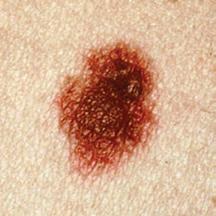


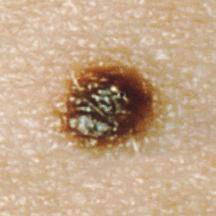

CANCER PREVENTION WORKS 9
NORMAL ABNORMAL
NORMAL ABNORMAL
ABNORMAL ABNORMAL
A Asymmetry NORMAL
NORMAL ABNORMAL
E
MultiCancer Early Detection Screening Coverage Act
Americans with Medicare the possibility of access to multi-cancer early detection (MCED) tests once they are approved by the Food and Drug Administration (FDA) and shown to have clinical benefit.

H.R. 2407 is sponsored by U.S. Reps. Jodey Arrington (R-Texas), Terri Sewell (D-Ala.), Richard Hudson (R-N.C.) and Raul Ruiz (D-Calif.). Its Senate companion, S. 2085, is sponsored by U.S. Sens. Mike Crapo (R-Idaho), Michael Bennet (D-Colo.), Tim Scott (R-S.C.) and Ben Cardin (D-Md.). This legislation modernizes the Medicare program and creates a benefit category for MCED tests, which allows the Centers for Medicare and Medicaid Services (CMS) to initiate an evidence-based coverage process for multi-cancer tests upon FDA approval.
Currently, the routine cancer screening tests available and covered by Medicare detect only five cancer types: breast, cervical, colorectal, lung and prostate cancers. These screening tests are vital in reducing the burden of cancer. Finding cancer early, before symptoms appear and before it has spread to other parts of the body, increases the likelihood treatment will be successful, lowers the cost of treatment and improves quality of life for patients and their caregivers. To save more lives, we need routine screening tests for more cancer types so that we can detect additional cancers in early stages—that’s the potential of multicancer early detection tests
The Nancy Gardner Sewell Medicare Multi-Cancer Early Detection Screening Coverage Act and its Senate companion have the support of more than 500 leading health care and advocacy organizations across the United States, demonstrating the significant impact that MCED tests would have on a diverse set of communities. These organizations provide essential services to cancer patients, offer resources to families, and raise awareness of the need to improve prevention and care for a range of different cancers.
This bipartisan legislation recognizes emerging advances in our nation’s fight against cancer by ensuring Medicare can make a coverage decision for new, innovative tests that can detect multiple types of cancer before symptoms develop. The Prevent Cancer Foundation is grateful for the co-sponsors who are leading the way in Congress to make potentially lifesaving cancer detection technologies available to those who need them most.
SUMMER 2023 10
Science is changing, treatments are improving, but coverage is not keeping up. We need Congress to enable Medicare patients to access the newest lifesaving or lifeextending tests and treatments.”
— Carole Florman, policy fellow at CancerCare, one of the more than 500 organizations that has signed on to support this legislation
THE POWER OF CONSISTENCY:
Have you heard about Prevent Cancer Foundation’s Innovation Circle? Here at the Foundation, we dare to imagine a world where cancer is preventable, detectable and beatable for all—where a community of people can forever transform the reality of cancer. As a part of our community, there’s more than one way to make a big impact. That’s where the Innovation Circle comes in.
By joining this monthly giving program, you can play a crucial role in advancing the Foundation’s mission. Your recurring donations will provide a steady stream of funding we can rely on to empower people to stay ahead of cancer through prevention and early detection. With your support, we can fund additional innovative research and educate more people about cancer prevention and early detection.
Monthly giving is an excellent option to make a difference in a way that aligns with your lifestyle and demonstrates your ongoing commitment to the cause. Your recurring donations add up over time and significantly impact the Foundation’s ability to drive the future of the cancer landscape. Monthly donations are also the easiest way to give, spreading your donation out over the year with one simple transaction.
Join
CANCER PREVENTION WORKS 11
Join our Innovation Circle!
When you join the Innovation Circle, you will make a difference every day and help the Foundation reach its goals, like investing $20 million toward research in innovative technologies to detect cancer early and advance multi-cancer screening. the Innovation Circle today using the QR code above and become part of a community that strives for a brighter tomorrow.
333 John Carlyle St., Ste. 635, Alexandria, VA 22314

Toll-Free: (800) 227-2732


Main: (703) 836-4412
Email: pcf@preventcancer.org
Visit: preventcancer.org

John Carlyle Street, Suite 635 Alexandria, VA 22314 Cancer Prevention Works is published by the Prevent Cancer Foundation®, a 501(c)3 nonprofit organization dedicated to the prevention and early detection of cancer. All contributions are tax deductible to the fullest extent allowed by law.
2023
333
SUMMER
CONTACT:
TO SUBSCRIBE,
PREVENT CANCER FOUNDATION®
October is Breast Cancer Awareness Month! Find out more information about breast cancer and if you need to be screened at preventcancer.org/breast . COMING SOON


























